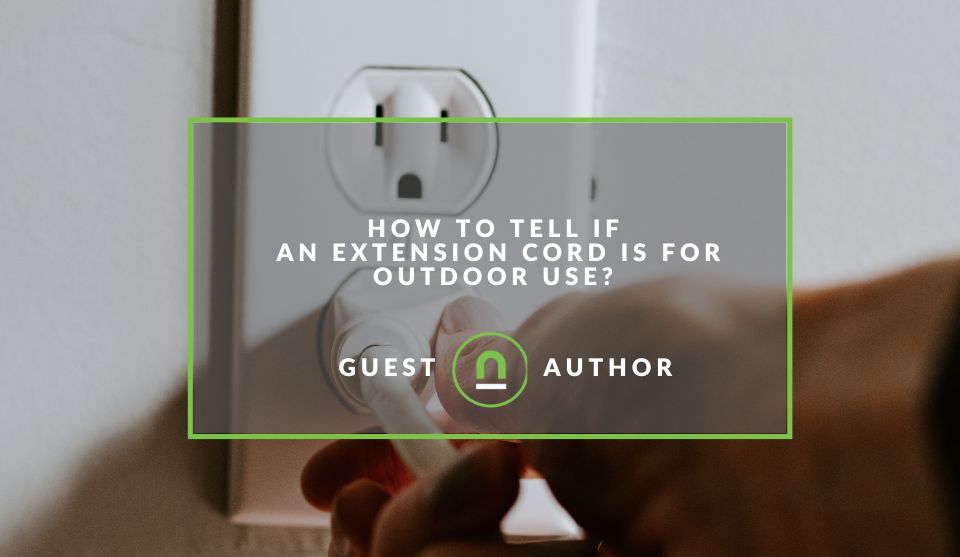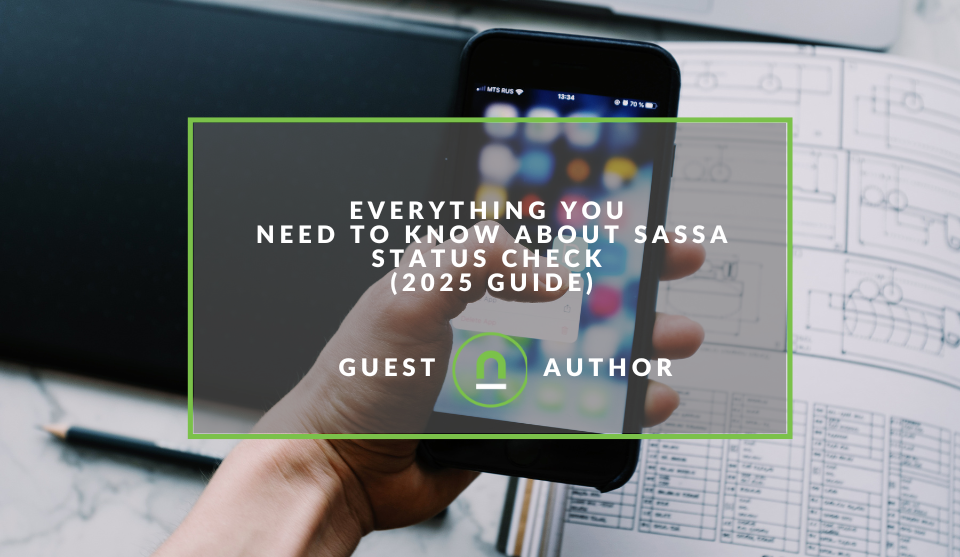Recent posts

nichemarket Advice
AI-Powered Overviews Are Nicking Your SERP Clicks
11 May 2025

Money Talks
The True Cost of Instant Money
07 May 2025

Industry Experts
How to Grow Sales with Story Viewing
06 May 2025

Mind, Body & Soul
Do Not Whistle at Night: South Africas Strangest Superstitions
26 April 2025
Popular posts
Extravaganza
Trending Music Hashtags To Get Your Posts Noticed
24 August 2018
Geek Chic
How To Fix iPhone/iPad Only Charging In Certain Positions
05 July 2020
Extravaganza
Trending Wedding Hashtags To Get Your Posts Noticed
18 September 2018
Money Talks
How To Find Coupons & Vouchers Online In South Africa
28 March 2019
How To Tell If an Extension Cord Is for Outdoor Use?
27 February 2023 | 0 comments | Posted by Jessica Smith in Shopaholics
An extension cord can be handy when your electrical outlet is not conveniently located for your needs. The holiday season and outdoor events necessitate knowing which type of extension cord is best for the situation.
Extension cords are not all created equal. Identifying an outdoor extension cord suitable for outdoor applications is critical to ensure electrical safety, property protection, and life preservation. Americord is proud to be a leading manufacturer in the extension cord industry in the United States and internationally.
They have been providing high-quality products and excellent customer service since 1989. Consider Americord when you need to buy extension cords online. The information provided below assists you in knowing an outdoor extension cord.
Colour
The colour of the insulation can also be used to determine whether the cord is suitable for outdoor use. Outdoor extension cords are typically bright yellow, blue, or green.
There are also waterproof orange and brown extension cords, ideal for wet and moist conditions.
Amperage
Outdoor extension cords have a higher amp rating when compared to indoor extension cords. This means they can hold more power, making them ideal for power-hungry devices.
Technically, the amp rating of a cord can be determined by the wire gauge size or AWG. The wire size increases as the number of AWG decreases.
Plug
Unlike indoor extension cords, which normally have two prongs, outdoor extension cords frequently include a three-pronged socket. The extension cord's third prong acts as a grounding wire to reduce the risk of electrical shock or fire. An outlet with a ground slot is intended to accept a three-pronged plug.
Insulation
Another feature that distinguishes an outdoor extension cord is its insulation. Its insulation is typically thicker and made of heavy-duty rubber, plastics, or vinyl, making it heavier and more robust.
Rating Indicator
When shopping for an extension cord for outdoor use, look for a "W" sign on the cover or insulation. This letter stands for weather-resistant compound, which is strong and suitable for outdoor use. This sign and the other cord features can be found on the packaging.
Guidelines for Proper Outdoor Extension Cord Usage
These are some crucial safety measures to follow while utilizing outside extension cords around your home, in addition to using the right kind of extension cord for a GFCI and outdoor use:
Storage of Extension Cords
Unplug the extension cord after use, coil it properly, and store it in a dry place away from extreme temperatures and moisture.
Inspect Cords Before Each Use
Before using a stored extension cord, inspect all sides along the entire length of the cord for cracks in the covering and exposed wire. Check that the plugs on both ends of the cord are securely attached, not loose or allowing exposed wires above the plug.
Choose Highly Visible Cords
Use brightly coloured cords when powering construction tools, maintenance equipment, and so on to avoid creating a trip hazard.
Outdoor Extension Cord Categories
Extension cords are classified into three types. Choosing the one that is best for the situation may determine you.
- Occasional use of outdoor extension cords- On rare occasions, Outdoor extension cords are designed to power electric power tools for a limited time. This could be used to power a circular saw during a construction project. They are not intended to convey power continuously for long periods.
- Rugged outdoor extension cords- they are the most durable and are intended for use on commercial job sites with high-amperage power tools. They also have better weather resistance, making them a better choice for running a small campsite generator.
- Frequent use outdoor extension cords- Outdoor extension cords for frequent use are designed to handle larger tools and equipment and heavier use. In your workshop, you could use this to power a 110-volt table saw.
What Are the Different Extension Cord Plug Types?
There are various types of plugs that you may encounter, just as there are various types of extension cords.
Two-prong plugs- light-duty interior extension cords typically have two-prong plugs. They are less secure and should never be used with high-voltage appliances.
Three-prong plug extension cords- for outdoor use, three-prong plug extension cords are the most common. The third prong acts as a super ground for carrying high voltage. It significantly lowers the risk of an electric fire caused by a short circuit.
Does Gauge Affect Amperage Capacity?
Most outdoor extension cables have an AWG rating stamped on the jacket. This is the maximum current that can be supplied from the outlet to the appliance without causing it to overheat.
A cord can sometimes deliver more amperage than this rating, but its resistance can cause it to gradually overheat, short circuit, fail, or even start an electrical fire.
If you are unsure of a device's or power tool's amperage, check the stamped metal plate on the back or bottom. The amperage or wattage is usually stated on the label or in the owner's manual. If it only shows the wattage, some basic math can be used to calculate the amperage. Multiply the number of watts by 110.
It's also worth noting that the extension cord's and internal wire's gauge will affect the amount of amperage it can deliver. This is usually stamped on the jacket tag of the plug or wire. If you see something like a 14/3 on the cord jacket, the extension cord is a 14-gauge wire with three wires inside.
Bottomline
Using the incorrect cables for electrical applications can endanger everyone in your home. As a result, to avoid injury and property damage, you should know how to tell if an extension cord is intended for outdoor use. Also, remember that this item is not intended for long-term use.
If you require a permanent outdoor extension cord, we recommend seeking advice from a professional and your city's electrical inspector.
Tell us your story
Would you like to write for nichemarket just like Jessica has? Find out how to submit a guest post, and when you're ready, you can contact us.
Are you looking to promote your business?
Real estate agencies, and construction or renovation businesses can create your free business listing on nichemarket. The more information you provide about your business, the easier it will be for your customers to find you online.
Registering with nichemarket is easy; all you will need to do is head over to our sign-up form and follow the instructions. If you require a more detailed guide on how to create your profile or your listing, then we highly recommend you check out the following articles.
Recommended reading
If you enjoyed this post and have time to spare, why not check out these related posts and dive deeper down the rabbit hole that is real estate.
- New Home Inspection Checklist
- How To Start House Flipping
- Why South Africans Are Buying A Property in Malta
- Should You Buy or Rent a Condo?
- A Foreigners Guide to Buying a Thailand Property
- How To Buy Property if You Are A Non-Filipino
- How Do You Know A Property is Priced too High?
Tags: Shopping Guide, Guest Post
You might also like
Everything You Need to Know About SASSA Status Check
13 April 2025
Posted by Azhar Khanzada in Money Talks
A guide for 2025 for anyone looking to apply for a SASSA grant or would like to keep up to date with the status of your grant from application to red...
Read moreThe True Cost of Instant Money
07 May 2025
Posted by Albert Ventura in Money Talks
A deeper look at the fees and fine print behind instant money and cash advances, and why these tools might not be the solution for your cash flow pro...
Read more
